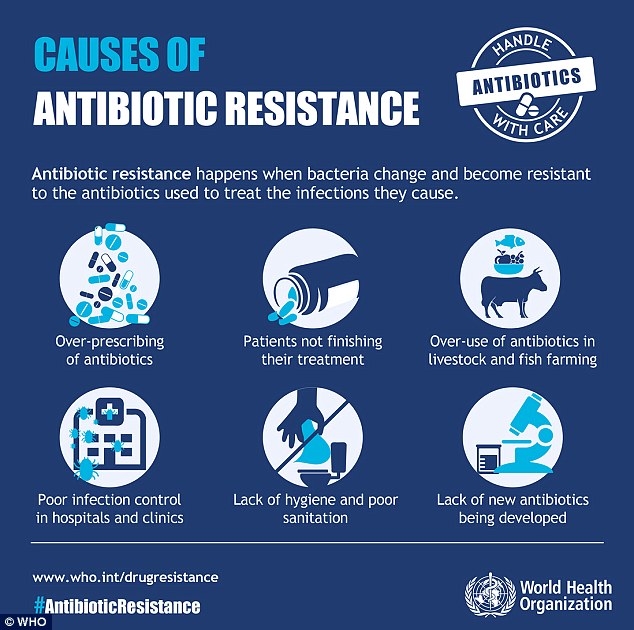 Antibiotics are medicines that are used to prevent, combat and cure bacterial infections. Unfortunately, they do not help with viral infections. Read this brief review to learn more about what they are, and how they are used as medical treatments.
Antibiotics are medicines that are used to prevent, combat and cure bacterial infections. Unfortunately, they do not help with viral infections. Read this brief review to learn more about what they are, and how they are used as medical treatments.
About:
The medical development of anti-bacterials has a long and varied history. Since the dawn of modern medicine, scientific researchers have been trying to keep up with the latest strains of bacterial infections in an effort to provide effective medicines. Today, antibiotics come in varied forms such as pills, intravenous and topical applications. Some are over the counter (nonprescription), and others are by prescription only. Each antibiotic has specific uses and should only be used as directed by your doctor or as directed on the medication’s product labeling. Some are needed to cure a current bacterial infection, or infectious disease within the body and some are used to prevent an infection, such as on a cut or scrape.
Be sure to discuss your medications and medical history with your doctor. Also make sure to report to your doctor, any adverse reactions from any anti-bacterial medications you are taking.
List of Antibiotics:
This is not a complete list, but rather an overview of the various antibacterials that were created or developed at some point in our history. These have, or, may still be used in medical treatments today.
- Neomycin – typically used in topical medications such as Neosporin
- Penicillin – still used today, but many bacterial infections may be resistant
- Benzylpenicillin
- Tetracycline – broad spectrum and used for a variety of bacterial infections
- Streptomycin
- Ampicillin
- Spiramycin
- Erythromycin
- Demeclocyclin
- Dicloxacillin
- Flucloxacillin
- Cloxacillin
- Nafcillin
- Cefalexin
- Doxycycline
- Minocycline
- Vancomycin
Conditions where antibiotics may be used to treat various symptoms and infections:
The following is a partial list of the health conditions that may warrant some type of antibiotic as a treatment. It is important to remember that only your doctor or pharmacist will know which medicine will be appropriate for the patient’s infection or condition.
- Acne
- Bronchitis
- Rosacea
- Skin infections
- Sinusitis
- Lyme disease
- Gram-positive bacteria
- Staphylococcus aureus
- Penicillin-resistant Staphylococci
- Pneumonia
- Preventive treatment
- Septicaemia
- Urinary tract infections
- STD’s
- Gonorrhea
- Cellulitis
- Listeriosis (listeria)
- Meningitis
- Salmonella bacteria
- Bacterial endocarditis
- MRSA
- Impetigo
- Chronic prostatitis
Disclaimer: Nothing within this post should be considered a substitute for medical advice. See your doctor or pharmacist for information.
Resources:
- www.dermadoctor.com/article_Your-Medicine-Cabinet_43.html
- www.ncbi.nlm.nih.gov/pmc/articles/PMC1820086/
- www.nlm.nih.gov/medlineplus/antibiotics.html
Related posts:
- www.affinityhealth.org – Affinity Health System Review
- Nyquil Coupons and Discounts
- Post-Traumatic Stress Disorder PTSD – What is It?
- CVS/pharmacy Health Savings Pass Prescription Plan
- What is Bursitis?


